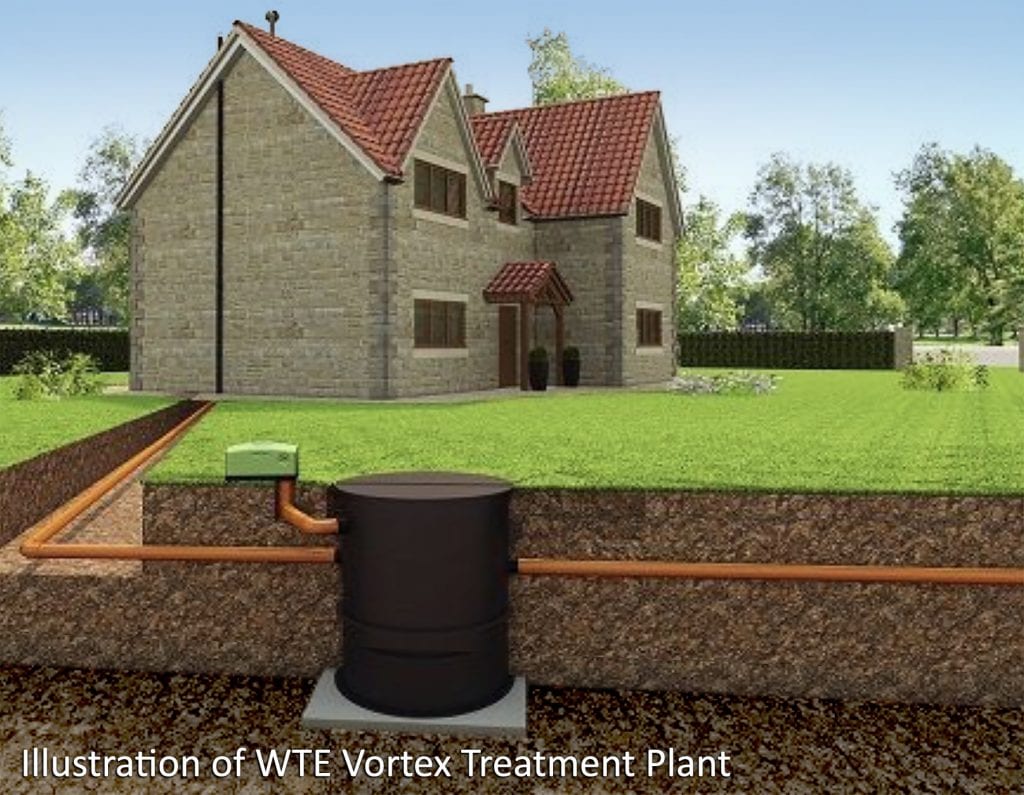Most so-called soakaways have failed without homeowners knowing it, the toxins enter the water table and travel along within this saturated subsoil under pressure, only to be forced upwards or outwards into other environments, or to sources of drinking water such as boreholes and aquifers.
Having researched the widespread impact, The Environment Agency’s findings culminated in the government introducing a legally binding set of rules that apply to all owners of systems that are not connected to a mains sewer, these are classed as SSD’s (Small Sewage Discharges).
A properly certified wastewater treatment plant processes raw sewage into clean water effluent by accelerating the action of bacteria in the tank and leaving a settled organic matter similar to river silt in a chamber. The clean effluent can safely go straight into a watercourse or a specially designed drainage field where geographical factors allow it, or it can enter a dry ditch, for which a permit is needed.
People need to take action before the end of 2019 when the 5 year grace period for the General Binding Rules ends and Environment Agency enforcement begins, or when they sell a property if this is sooner. The only septic tanks that are exempt from the new laws are those that were installed before 1983 and which have a correctly functioning underground drainage field.[/vc_column_text][vc_single_image image=”158″ img_size=”full”][vc_column_text]Here are some top tips for owners of wastewater treatment plants and septic tanks to get the best out of them by keeping bacteria healthy and avoiding blockages. Septic tanks will work better if you follow this guide but following the rules will not fix the pollution issue, it is important for all owners to seek professional advice.
Tell the kids – “If it’s not pee, paper or poo, don’t put it in the loo!”
Tell your guests – Please don’t put any manmade items down the toilet (there are no exceptions).
Don’t have a washing day – use liquid not powder and spread your washing through the week.
Use toilet cleaners that are suitable for septic tanks and sparingly use bleach once a week.
Never empty unused medicines or mouthwash into the sink or toilet.
Never put any fat, grease or oil into the sink or toilet, put it into a container and into the bin.
Avoid using antibacterial soap, in most cases ordinary soap is just as good if not better.
If you use antibacterial spray cleaner, use disposable paper towels and put them in the bin rather than rinsing cloths out in the sink.
Use the small flush button to flush the loo when a full flush is not needed. If you do not have dual-flush buttons, ask your plumber about upgrading.
Don’t put your dishwasher on half-loaded, dishwasher detergent is commonly the most aggressive chemical in our homes that is designed to go into sewer pipes and must be used as sparingly as possible.
We all want to do everything we can to look after the planet for the next generation, upgrading from a septic tank to a wastewater treatment plant and operating it correctly is a great way for householders to make a difference now.[/vc_column_text][/vc_column][/vc_row]


